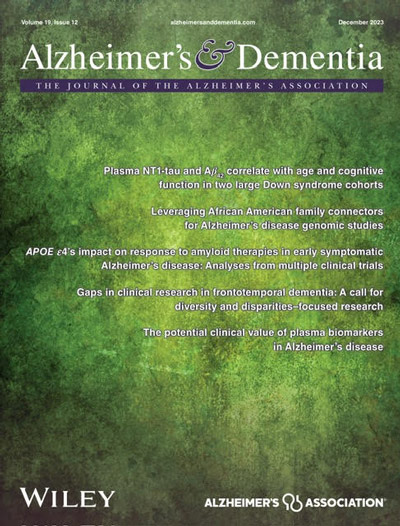NCRAD: Advancing Alzheimer's research through high-quality biospecimens and data
Abstract
The National Centralized Repository for Alzheimer's Disease and Related Dementias (NCRAD) was established in 2002 to support research on the genetics of Alzheimer's disease. NCRAD quickly became a central resource, banking samples from numerous studies and distributing them to researchers worldwide. As genetic risk variants were identified, NCRAD prepared for functional studies by expanding its collections to include peripheral blood mononuclear cells (PBMCs), RNA, and biofluids. Over the past decade, NCRAD's extensive repository of plasma, serum, and cerebrospinal fluid was essential to the development of fluid biomarkers. NCRAD's rigorous best practices for sample collection, processing, and distribution ensure biospecimens are of the highest quality for a broad range of experimental approaches. Currently, NCRAD banks samples from 91 studies representing over 135,000 unique, well-characterized participants, and has distributed over 440,000 aliquots to more than 300 researchers. Data from NCRAD-supported studies have contributed to over 1100 publications and numerous key discoveries in Alzheimer's disease and related dementias (ADRD) genetics and biomarkers.
Highlights
- Centralized Biobanking for ADRD Research: National Centralized Repository for Alzheimer's Disease and Related Dementias (NCRAD) supports over 90 National Institute on Aging (NIA) -funded studies by providing standardized, high-quality biospecimens and longitudinal sample collections, enabling reproducible and scalable research into Alzheimer's disease and related dementias (ADRD).
- Enabling Genetic Discovery and Functional Genomics: NCRAD partnerships with numerous research initiatives has facilitated major advances in gene discovery, while also supporting downstream functional studies using induced pluripotent stem cells (iPSCs), transcriptomics, and post mortem brain tissue.
- Rigorous QA/QC and Automation Infrastructure: NCRAD employs comprehensive quality assurance/quality control (QA/QC) systems and cutting-edge automation—including robotic liquid handling, automated nucleic acid extraction, and ultra-low temperature storage—to ensure biospecimen integrity and reduce preanalytical variability.
- Unique Sample Distribution and Data Sharing Model: NCRAD's blinded sample distribution system and emphasis on returning data to public repositories ensure broad research access, maximize scientific output, and promote transparency and reproducibility.
- Collaborative, Scalable Repository Ecosystem: As part of Indiana University's integrated biobanking infrastructure, NCRAD supports efficient cross-study and cross-repository research, enabling large-scale multi-omic and biomarker analyses across diverse neurodegenerative diseases.





 求助内容:
求助内容: 应助结果提醒方式:
应助结果提醒方式:


